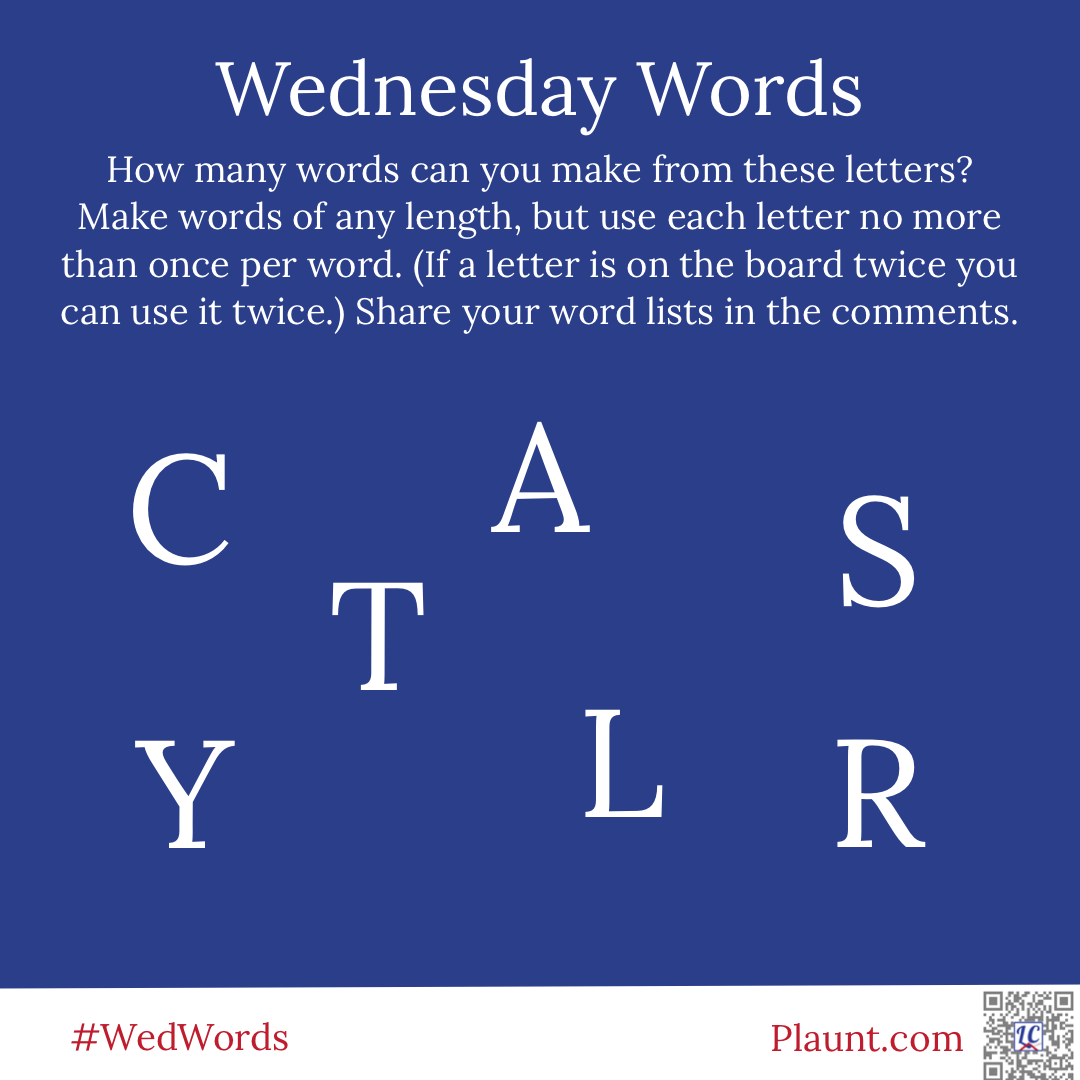In two sentences tell me about your work in progress.
Monday Muddle: brake, break
When the verb “break” is used to mean pause, it is often stated as the phrase “to take a break”. But after working for an extended period it is also common for someone to say, “Let’s break for coffee.”
Working with someone on your breaks does not mean the same thing as working with someone on your brakes.
Saying your car has new breaks is not a good idea if you are trying to sell it. New brakes, however, would be worth mentioning.
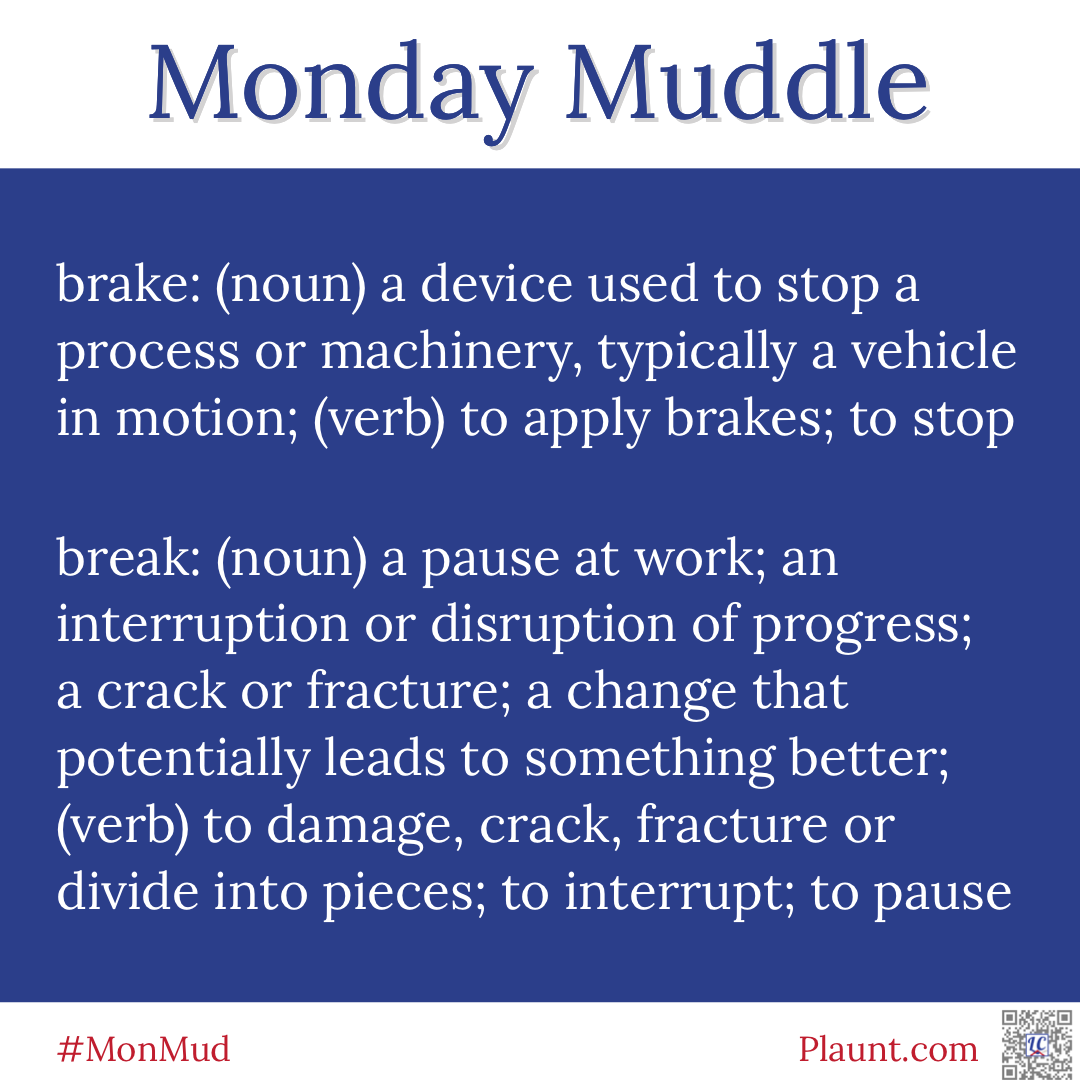
Language Laughs
For a weekly dose of language-based humour, visit my Facebook page at https://facebook.com/lcplauntMEd
Thursday Thought #CathrynLavery

Wednesday Words
How many words can you make from these letters? Make words of any length, but use each letter no more than once per word. (If a letter is on the board twice you can use it twice.) Share your word lists in the comments.
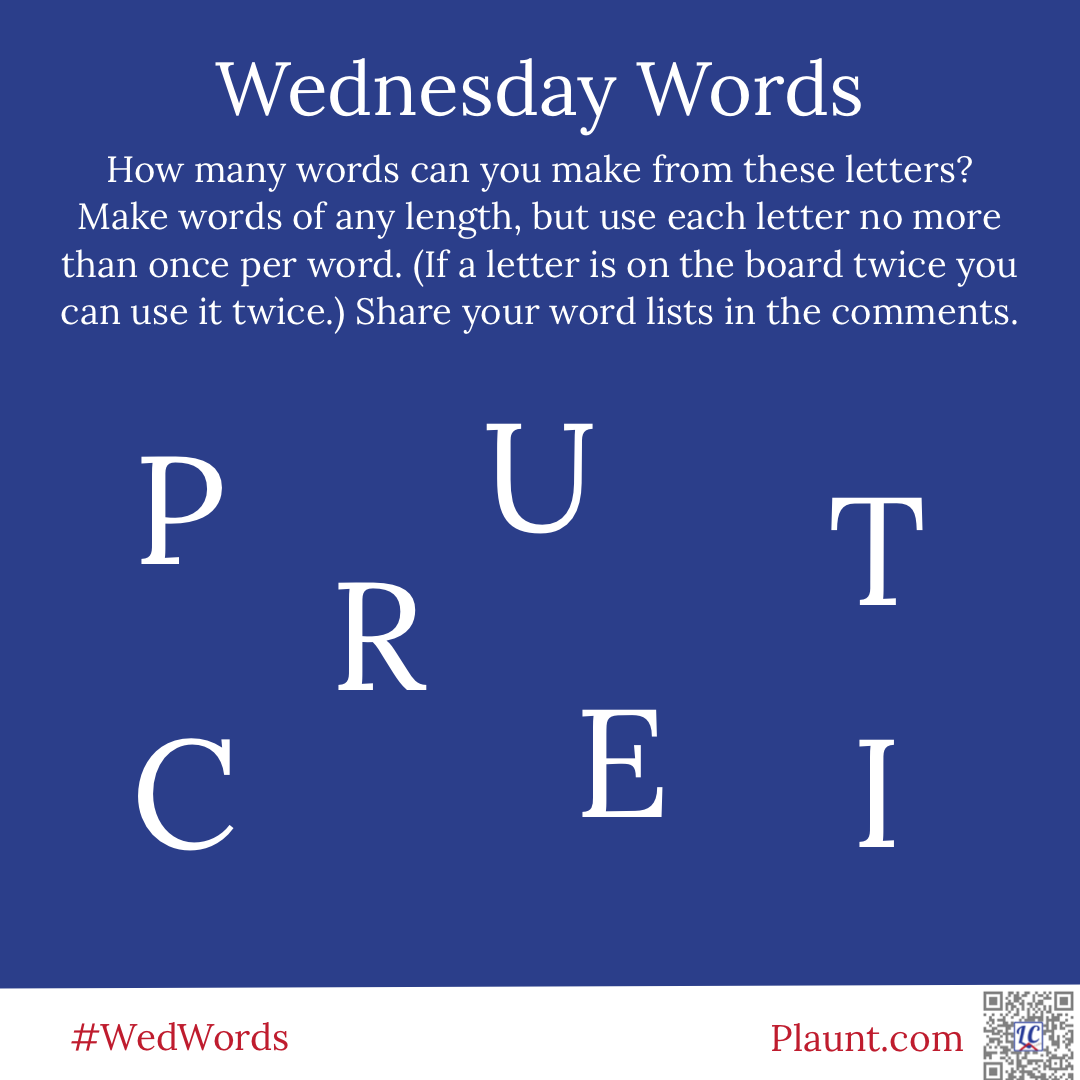
Tuesday Two
Monday Muddle: dugout, dug out
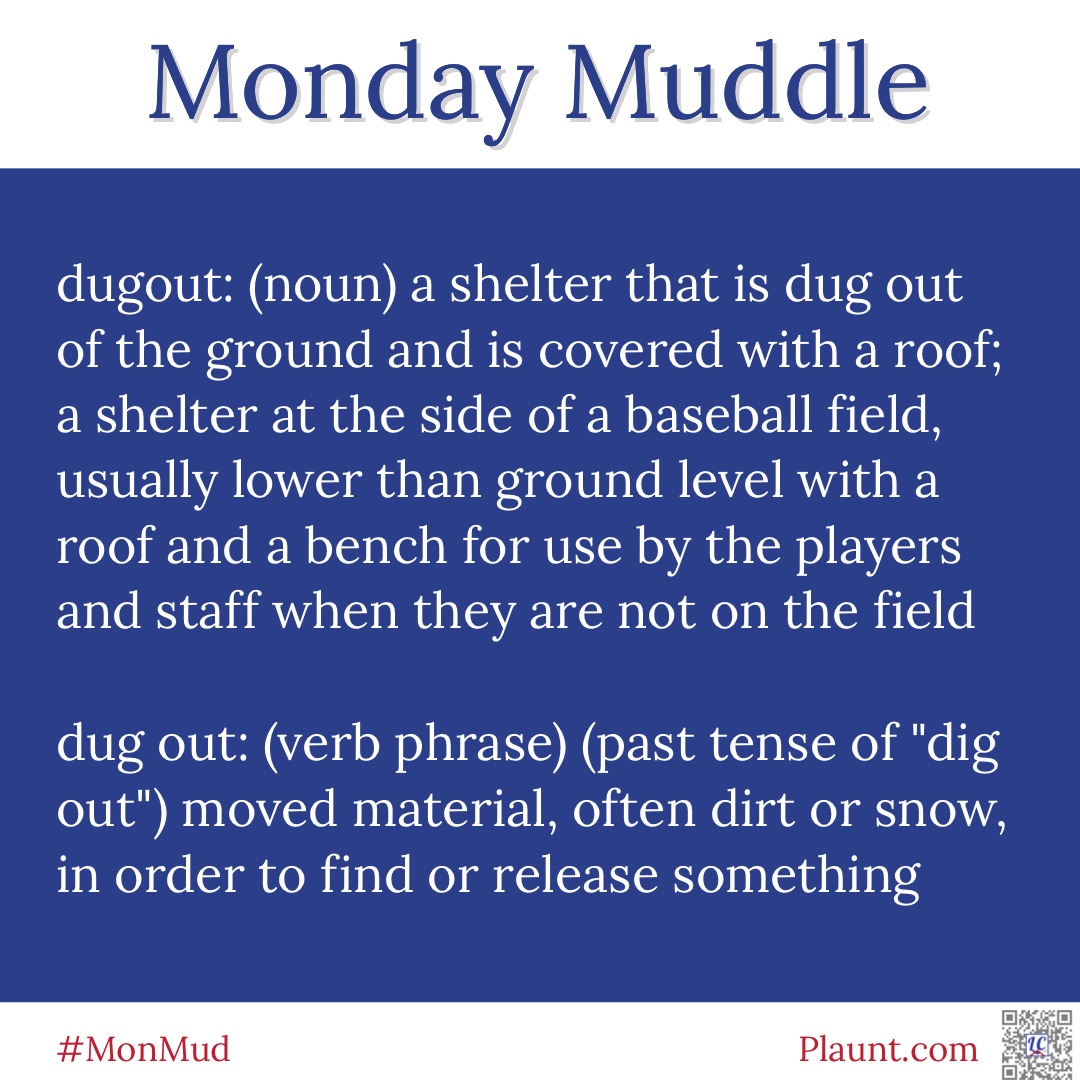
In Canada, and possibly other places where winters are harsh, you might hear someone say, “After we get dug out…” because after a big snowstorm it can be a major project to get through your doorway and shovel a path to your driveway and your car. If, however, you hear someone say, “After we get dugout…” they may be talking about building a baseball stadium. In that case, a definite article (the) or an indefinite article (a) should precede the noun “dugout”. If you are the one building the baseball stadium, you would be responsible for getting the dugout dug out.
Language Laughs
For a weekly dose of language-based humour, visit my Facebook page at https://facebook.com/lcplauntMEd
Thursday Thought #TerryPratchett
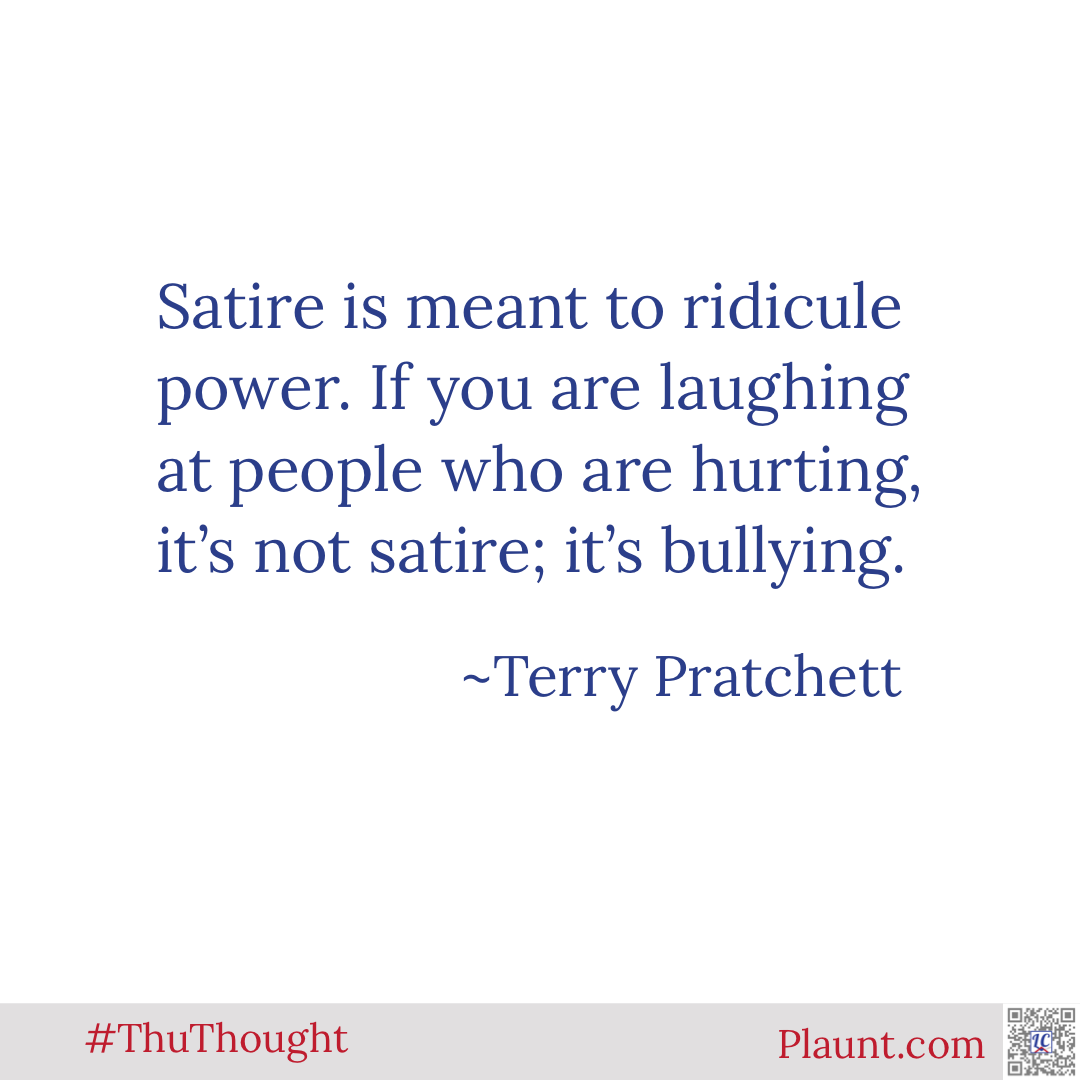
Wednesday Words
How many words can you make from these letters? Make words of any length, but use each letter no more than once per word. (If a letter is on the board twice you can use it twice.) Share your word lists in the comments.
